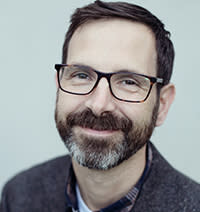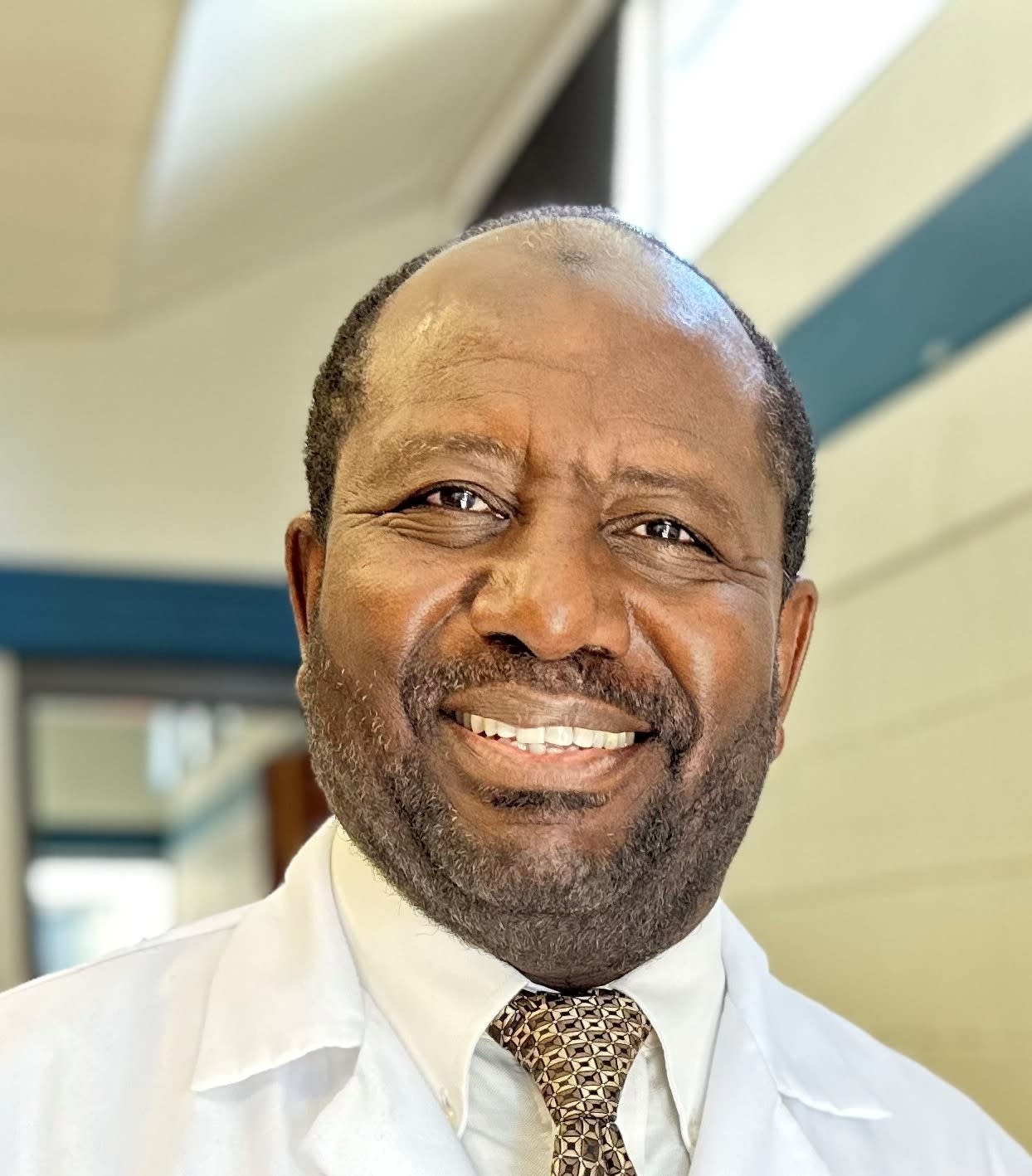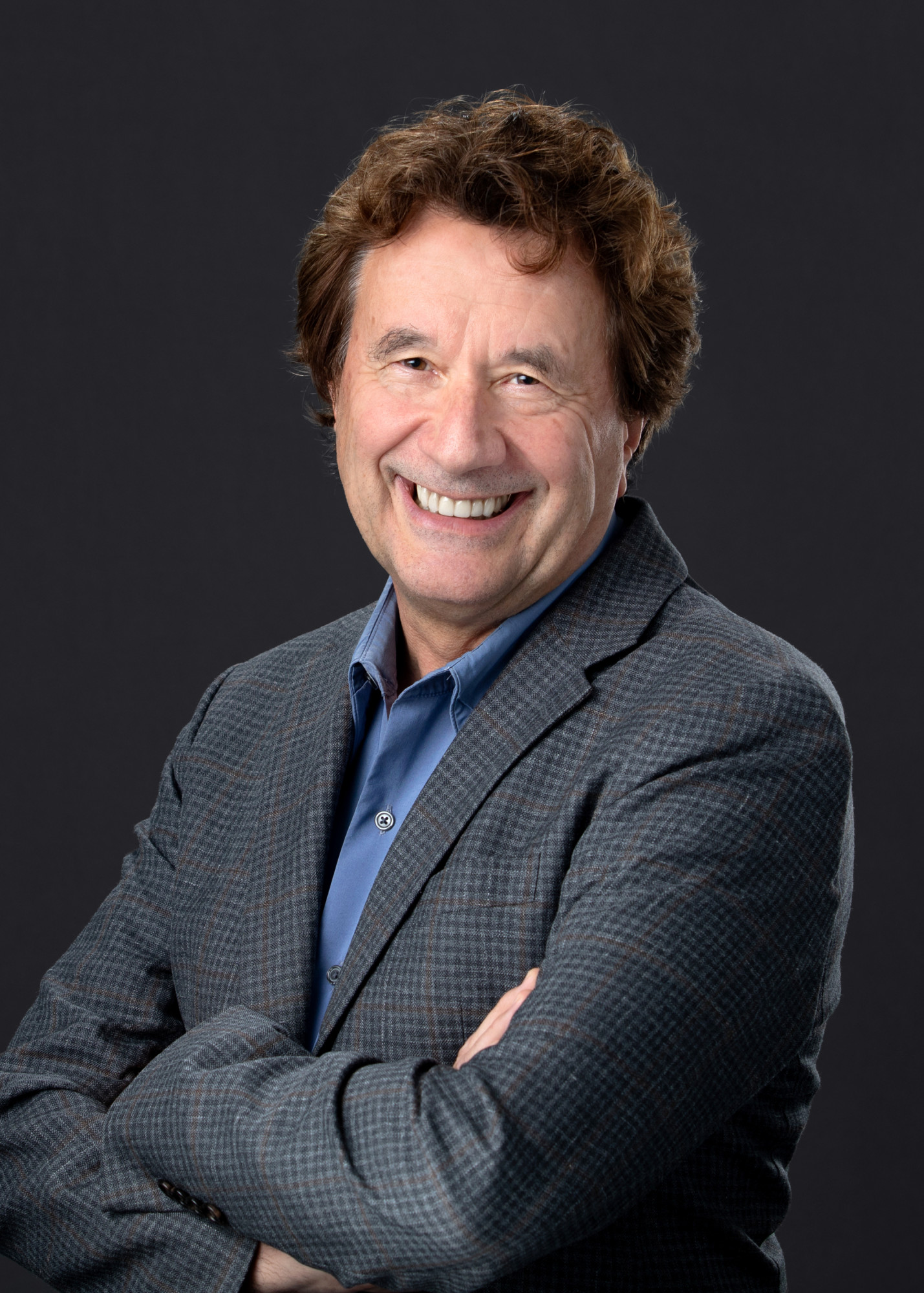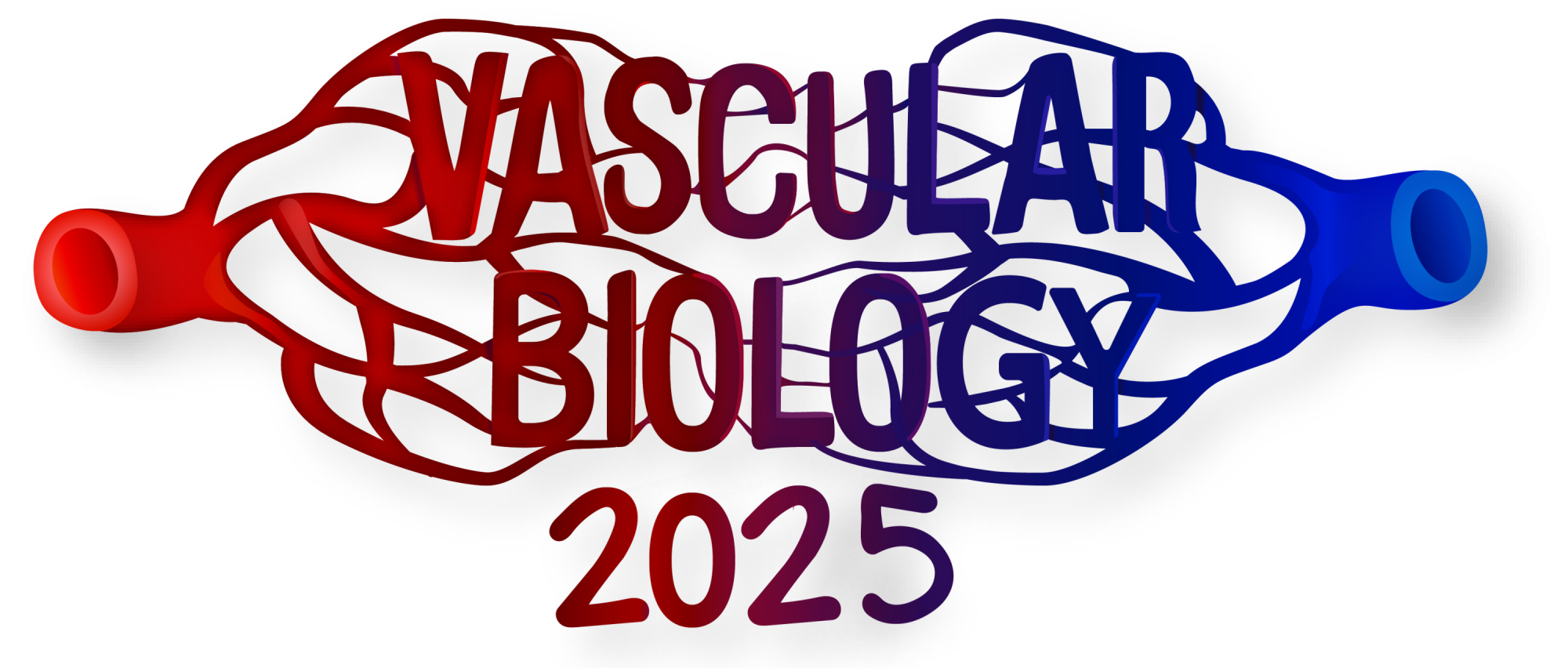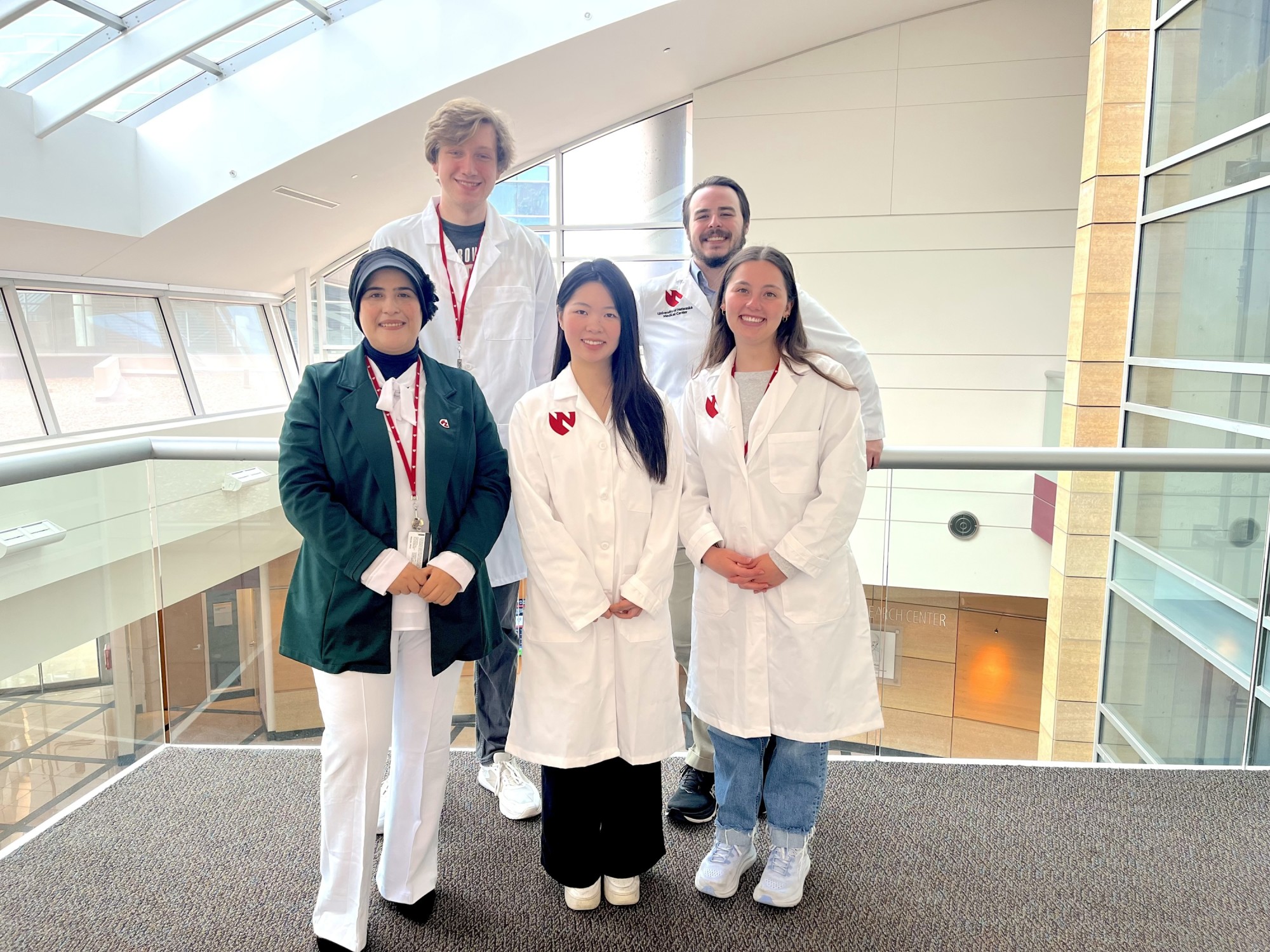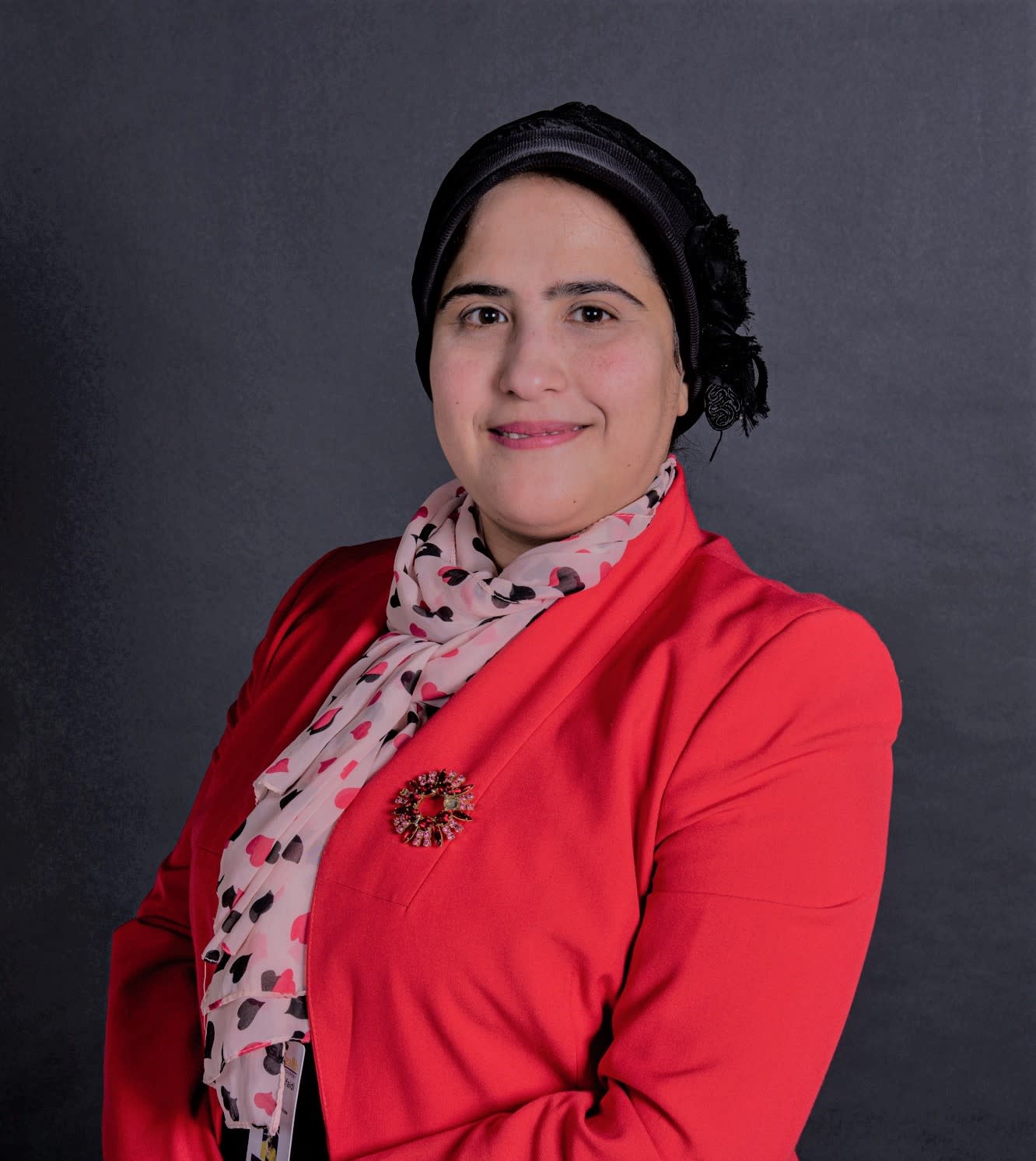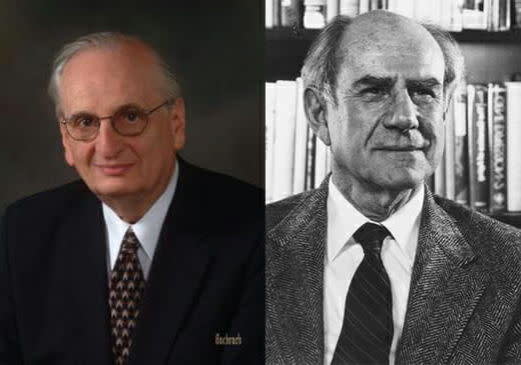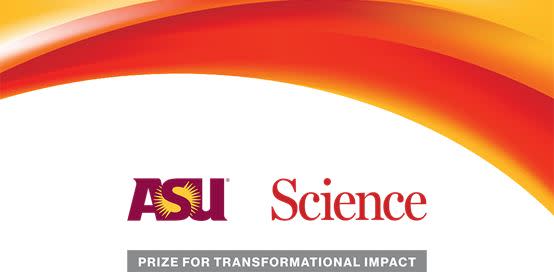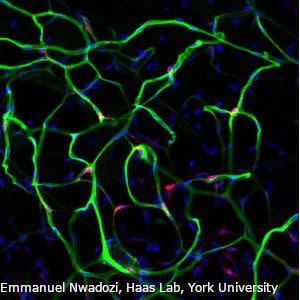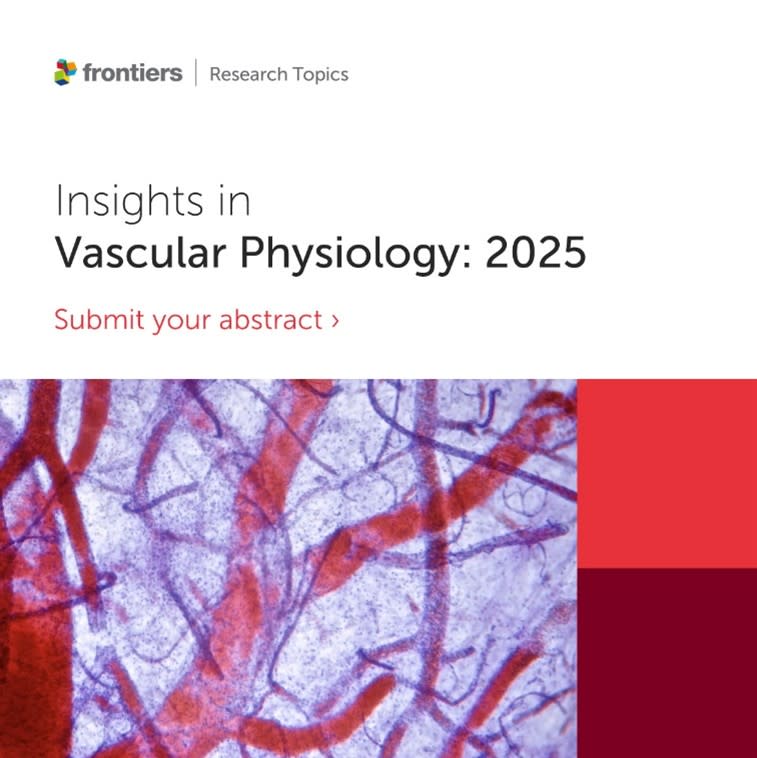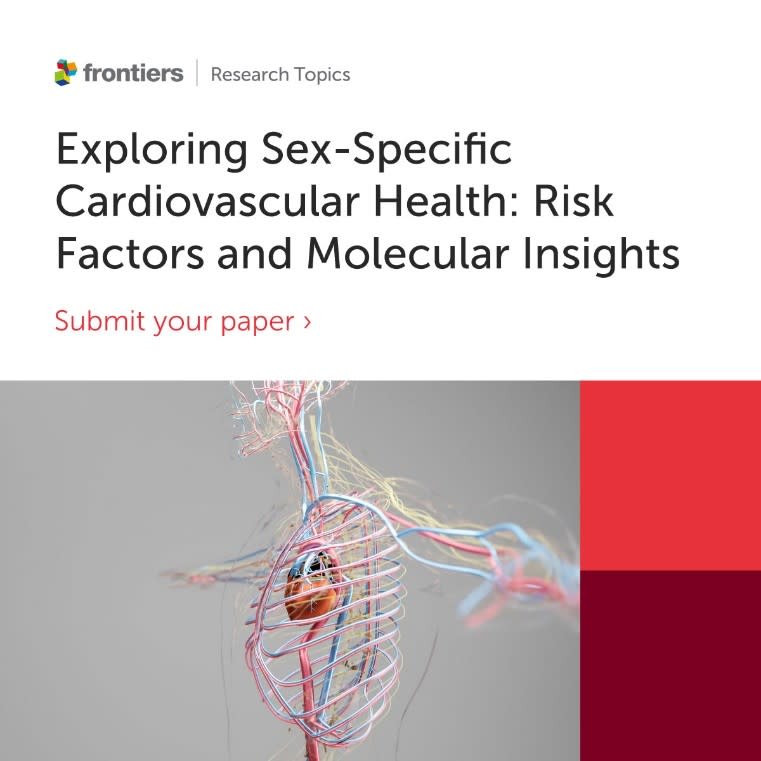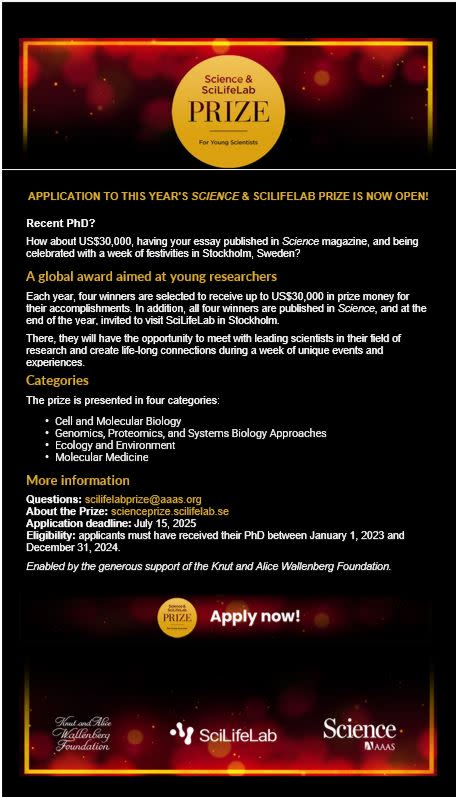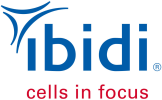|
View this Newsletter Online |
|
|
|
|
June 2025 |
|
President's Message |
|
|
have a devastating impact on the economy and the health of the American people. The failure to fund life-saving research and clinical trials will endanger the health and lives of many for years to come. NAVBO will continue to support these types of efforts to advocate for more support for research.
Jason Fish, PhD President, NAVBO
Helpful links: Contact information for US Congress Members More tools for Advocacy from Research!America |
|
|
2025 Sabin Award - Mahdi Garelnabi |
|
|
Mahdi Garelnabi to Receive 2025 Florence R. Sabin Award |
|
Congratulations to Mahdi Garelnabi, M.Sc, Ph.D., the 2025 recipient of the Florence R. Sabin Award. The Sabin Award recognizes a unique individual who embodies the spirit of Dr. Florence Sabin (1871-1953), who broke scientific and social barriers with her research and community engagement. Dr. Garelnabi currently serves as an Associate Professor in the Department of Biomedical & Biomedical & Nutritional Science at UMass Lowell. This year’s award will be presented to Dr. Garelnabi at VB2025 in Hyannis, Massachusetts this October. Well done, Madhi! |
|
2025 Schwartz Award - Klaus Ley |
|
|
Klaus Ley Earns 2025 Stephen Schwartz Award for Outstanding Mentorship |
|
NAVBO’s Meritorious Awards Committee is pleased to name Klaus Ley, M.D., as the 2025 recipient of the Stephen Schwartz Award. Named in honor of Dr. Stephen Schwartz, a revered mentor and co-founder of NAVBO, the award recognizes a mentor who has contributed significantly to the successful career of scientists who have trained in their laboratory, fostering both professional and personal growth. Dr. Ley currently serves as Professor of Physiology, Co-Director of the Immunology Center of Georgia, and Georgia Research Alliance Eminent Scholar at the Medical College of Georgia. The award will be presented in October at VB2025 in Hyannis, Massachusetts. |
|
The Vascular Network |
|
|
Introducing The Vascular Network - NAVBO's Exclusive Social Hub! We’re thrilled to unveil The Vascular Network, NAVBO’s brand-new social media platform built for our members. Designed to keep you connected and engaged—without the distractions, ads, or clutter of traditional platforms—this space is all about you and the vascular biology community. What Can You Do on The Vascular Network?
We, the Communities Committee, are excited to welcome you to this dynamic new space. The Vascular Network is your go-to destination for all things NAVBO—collaborate, share, and grow with your peers in vascular biology. Let’s get connected! |
|
NAVBO Committees Seeking Volunteers |
|
Are you passionate about the vascular biology community and looking for ways to make a meaningful impact? We are excited to announce that we are now accepting applications for committee volunteers, and we invite you to apply! Applications are due June 23, 2025.
Communications Committee – is responsible for our broad communications to the public. This includes our newsletter, web site and social media platforms. We are also currently working on NAVBO’s Wikipedia page. If you are active on Bluesky, Facebook, etc. consider joining this team. This committee is seeking NAVBO members at any stage in their career who are interested in promoting NAVBO and its activities.
Communities Committee - is responsible for triggering and maintaining engagement on NAVBO's Vascular Network, our online community. Currently this committee is spurring new conversations within the community. Our goal is to engage members and grow participation within the community and make the NAVBO members aware of this important tool, which provides the opportunity to tap into NAVBO's greatest resource, its members. This committee is seeking NAVBO members at any stage interested in engaging with the society and their fellow members.
Growth and Enrichment Committee – The mission of the Growth and Enrichment Committee is to fuel vascular science with curiosity and career momentum. The group is committed to empowering members of the vascular science community—trainees, early-career investigators, and established PIs alike—through dynamic, thoughtful programming that promotes mutual respect in both personal and professional interactions. Inviting experienced investigators and experts to share insights offers opportunities for learning from real-world experiences and strategies that contribute to long, fulfilling careers in science for everyone. The GEC aims to enrich each member's path—helping them grow into confident, innovative researchers with strong scientific track records and lasting impact in the vascular field. This committee is seeking NAVBO members at any stage interested in supporting their fellow members.
Membership Committee – is responsible for retention of members, establishing and maintaining certain member benefits, and reaching to possible new members with our Trial Membership Program. Helping to retain members often means engaging with new members to establish their relationship with the society. This committee is seeking NAVBO members in any stage of their career who are interested in building relationships and community with new members.
Please note: Membership in a committee is limited to active NAVBO members. |
|
NAVBO Conferences in 2025 |
|
Registration now open for Vasculata and Vascular Biology 2025!!! |
|
July 7-10, 2025 at the |
|
|
|
Save $$$ - register by 6/30 for Vascular Biology to get the Super Early Bird Discount! |
|
Lab of the Month |
|
|
Month - June 2025 The Lab of Dr. Mabruka Alfaidi This month we are highlighting the lab of Dr. Mabruka Alfaidi, Assistant Professor at the University of Nebraska Medical Center.
Find out more about her lab by visiting her page in our Lab of the Month listing. |
|
Lessons Learned |
|
|
Mabruka Alfaidi, M.D., Ph.D.
I have always been grateful to NAVBO as a community. I joined NAVBO first as a PhD student in 2014, and since then, I have gained a lot of experience through the extensive training to prepare me to be a PI. This started by joining the NAVBO’s extensive week of training in vascular biology (Vasculata) and then the versatile NAVBO workshops, round tables for career development in academia, online and offline courses, and other career resources. |
|
I am an assistant professor at the Department of Cellular & Integrative Physiology at the University of Nebraska Medical Center in Omaha, Nebraska. I earned my PhD from the University of Sheffield, UK, on interleukin-1 release mechanisms from the coronary endothelium in Sheila Francis’ lab. Immediately following that, I moved to the USA, where I completed my postdoctoral training at Louisiana State University in the lab of Dr. A. Wayne Orr. My postdoctoral training was on mechanotransduction and endothelial activation in early atherosclerosis. Since my independence, my research lab has been investigating novel therapeutic targets in severely advanced human coronary atherosclerotic disease. I am grateful to my mentors, colleagues, all the trainees I have trained and interacted with, including the curious residents, cardiology fellows, postdoctoral fellows, medical students, PhD students, undergraduates, and high school students.
|
|
Spotlight on Trainees |
|
NASEM Action Collaborative releases paper on sexual harassment and the post-doctoral experience An Issue Paper, titled “Considerations for Supporting Postdoctoral Scholars Experiencing Sexual Harassment in Higher Education,” has been issued by The National Academies Press. Postdoctoral scholars are particularly vulnerable to sexual harassment because of their early career stage, the frequent lack of clear institutional pathways for grievance or redress, and one-on-one relationships with their career-influencing advisors. Workplace bullying, harassment, and discrimination emerge from surveys as chief concerns of postdoctoral scholars, attributable in part to inherent power imbalances in the postdoc/mentor relationship. The paper outlines a variety of strategies for mitigation, including focus on supervisory policy and procedures, mentorship training, and the virtues of community-building. |
|
Call for Nominations |
|
|
We are seeking nominations from the membership for the 2026 Earl P. Benditt and Judah Folkman Awards, which will be presented at Vascular Biology 2026 at Asilomar in Monterey.
Nominations are due July 15, 2025. See the web site for more details. |
|
|
|
|
This award recognizes a Junior Faculty, who is within five years of their first independent investigator position or within five years of an independent research position in academia, government, or industry. An applicant must be |
|
submitting and presenting an abstract at the upcoming annual meeting. The award recipient will present their abstract in a 20-minute presentation usually within the Award Lecture session. Submit an abstract to Vascular Biology 2025 and complete an award application. For the 2025 award, the first appointment needs to be January 1, 2020 or later.
THE SPRINGER JUNIOR INVESTIGATOR AWARD IS MADE POSSIBLE BY SUPPORT FROM ANGIOGENESIS |
|
Travel Awards for Trainees |
|
NAVBO Sponsored Trainee Travel Awards to Vascular Biology Gordon Research Conferences
For more information, click here and go to the "Travel Awards - Other" tab. |
|
|
|
|
Arizona State University and Science have partnered to create the ASU–Science Prize for Transformational Impact. This prize recognizes transformational research that uses innovative methods and approaches to identify problems and develop solutions with impacts on policy and decision-making.
|
|
Member News |
|
Welcome to our New Members: Hosanna Abbay, Seattle Children's Celestina Agyemang-Dua, Wayne State School of Medicine Anisa Ashraf, University of Southern California Kamal Bagale, University of Pittsburgh Alex Barr, Carnegie Mellon University Sanjana Basak, University of Pittsburgh Hanna Bradford-Olson, University of Illinois Chicago Cornelia Cudrici, NIH Arturo Grano de Oro, University of Toledo Koye Guan, Florida Atlantic University Chul Han, Barrow Neurological Institute Junhao Hu, Jr., Shanghai Institute of Organic Chemistry Jonathan Ibinson, Carnegie Mellon University Faeze Jahani, Carnegie Mellon University Cortland Johns, Purdue University Sanjana Kumariya, University of Toledo Jiayue Lu, University of Pittsburgh Ande Marini, Stanford University Juliana Marques, Florida Atlantic University Shubh Mehta, Purdue University Jack Meyer, Florida Atlantic University Jade Minzlaff, University of Washington Sebastian Morales-Bermudez, Wayne State University Stella Potenti, Florida Atlantic College of Medicine Ignacia Salfate del Rio, Albany Medical College Kienen Salvadore, University of Pittsburgh Corey Scipione, University Health Network Michelle Shanefield, Florida Atlantic University Joanna Stuck, University of Toledo Jiawei Sun, City of Hope Deepa Suryanarayan, University of Pittsburgh Sithara Thomas, UTHealth Houston Brandon Trenta, Florida Atlantic University Yunmei Wang, Case Western Reserve University June Wu, Columbia University Medical Center Yan Zhang, University of Texas Health Science Center at Houston |
|
Recent Member Publications |
|
Sodium-glucose cotransporter-2 inhibitors in cardiovascular disease: a gaseous solution Sodium-glucose cotransporter-2 inhibitors (SGLT2i) are new oral hypoglycemic drugs developed for the management of type 2 diabetes mellitus (T2DM). These drugs target sodium-glucose cotransporter-2, the major glucose transporter expressed in the kidney, which is responsible for approximately 90% of glucose reabsorption from the urine. Read More
Intussusceptive angiogenesis-on-a-chip: Evidence for transluminal vascular bridging by endothelial delamination Rapid generation of small blood vessels is vital for embryonic development and many diseases. An efficient means of creating a new microvessel is for an existing vessel to split into two, a process recognized for over 35 years. However, the cellular events underlying vessel splitting remain largely a mystery. Read More
Holotomographic microscopy reveals label-free quantitative dynamics of endothelial cells during endothelialization Holotomograhic microscopy (HTM) has emerged as a non-invasive imaging technique that offers high-resolution, quantitative 3D imaging of biological samples. This study explores the application of HTM in examining endothelial cells (ECs). HTM overcomes the limitations of traditional microscopy methods in capturing the real-time dynamics of ECs by leveraging the refractive index (RI) to map 3D distributions label-free. Read More
Overexpression of adipose tissue ERα enhances PVAT anticontractility via NOX4-derived H2O2 and is protective against high-fat diet-induced dysfunction
lncRNAs in vascular senescence and microvascular remodeling
If you recently published a paper and would like to have it included in a future issue of the NAVBO NewsBEAT and/or on our web site. Please send the citation to membership@navbo.org |
|
Industry News |
|
Comments sought on NIH’s Artificial Intelligence Strategy The NIH has issued a Request for Information to guide its ongoing effort to develop an institute-wide AI strategy that charts a progression from today’s data-science-driven analytics through semi-autonomous AI agents to fully autonomous, self-documenting biomedical AI beings. Comments are sought on the central topics of Strategic Architecture, Research & Innovation Actions, Intramural–Extramural Synergy, Operational Excellence, Facilitating & Validating AI in Healthcare Delivery, Reproducibility & Trust, and Partnerships & Ecosystem Building. Instructions for response submission, die July 15, 2025, may be found at NOT-OD-25-117.
ASU-Science Prize for Transformational Impact accepting entries through mid-August Arizona State University and Science magazine have partnered to create the ASU–Science Prize for Transformational Impact. This prize recognizes transformational research by early career scientists that uses innovative approaches to identify problems and develop solutions with impacts on policy and decision-making. The grand prize winner and runner-up will receive cash awards, and their prize-winning essays will be published in Science. Entries, comprised of a <1000-word essay articulating the problem being addressed, the innovative research done, and its public benefit policy implications, are due August 15, 2025.
Xenon preconditioning and rarified airs Writing in The New York Times, Jonathan Wolfe and Bhadra Sharma explore the increasing but controversial practice of mountaineers inhaling xenon gas to boost their blood oxygen carrying capacity and high-altitude tolerance in preparation for scaling the world’s tallest peaks. Xenon is purported to elevate production of HIF-1alpha, a key regulator of expression of VEGF and Erythropoietin, thus potentially accounting for its ability to enhance athletic performance at any altitude. Some Mt. Everest expeditions have now used a 10-week preconditioning in a xenon-enriched atmosphere as an alternative to gradual adaptation at intermediate altitudes. Climbing purists are not favorably impressed. |
|
Call for Papers |
|
|
Frontiers In Cardiovascular Medicine Research Topic: Advances in Vascular Malformations: From Molecular and Cellular Mechanisms to Clinical Therapies and Management Topic Editors: Jennifer Fang, Elisa Boscolo, Miguel Lopez-Ramirez, Alexandre Dubrac NAVBO is sponsoring this Research Topic through our partnership with Frontiers in Cardiovascular Medicine. Vascular malformations refer to a wide range of structural abnormalities that can affect all vessel types in the blood and vascular lymphatic trees – including arteries, capillaries, and veins. Vascular malformation diseases can be inherited or can occur spontaneously; however, in all cases, resulting vascular lesions can significantly compromise cardiovascular and organ function and reduce patient quality-of-life. In this Research Topic, we aim to gather contributions from scientists and clinicians to share recent advances in our understanding of the biology and treatment of vascular malformations. Ultimately, our goal is to accelerate the development of new therapeutic treatments for patients with vascular malformations affecting blood or lymphatic vessels. Specific areas of interest are listed on the webpage: https://www.frontiersin.org/research-topics/70339/advances-in-vascular-malformations-from-molecular-and-cellular-mechanisms-to-clinical-therapies-and-management If you are interested in participating in this Topic, we encourage you to consider submitting a proposed manuscript summary by June 28, 2025.
|
|
|
|
|
The collection focuses on phenotypic transitioning of vascular and immune cells, such as endothelial-to-mesenchymal transitions with specific emphasis on the role of immune and inflammatory responses in vascular remodeling, genetic and epigenetic factors, environmental and lifestyle factors, personalized medicine approaches and the interplay between biomechanical forces and endothelial health in vascular remodeling. Editors: Drs. Laena Pernomian (University of South Carolina) and Vanessa de Fátima Borges (Cedars Sinai Medical Center, Los Angeles). Submission deadline: July 11, 2025. |
|
|
|
|
BMC Biology is calling for submissions to theirr Collection on vasculogenesis and angiogenesis in vivo and in vitro. This Collection aims to bring together cutting-edge research that explores the cell and molecular mechanisms and therapeutic applications of blood vessel formation in health and disease. Tara Haas, York University, is one of the guest editors. Deadline for submission is August 22, 2025. Download the flyer for more information.
|
|
|
|
This Research Topic will constitute the second volume of the Insights in Vascular Physiology series. The 2025 volume invites submissions of original papers, reviews, or perspectives on such topics as abdominal aortic aneurysm, impact of microbiome on vascular physiology, cerebral microcirculation, and coronary microcirculation (see the link below for full topics list). This issue is edited by Drs. Luis A. Martinez-Lemus, University of Missouri, Columbia, USA; Christopher Garland, University of Oxford, Oxford, UK; Francesco Moccia, University of Molise, Campobasso, Italy; and Andrew P Braun, University of Calgary, Calgary, Canada. Frontiers | Insights in Vascular Physiology: 2025, Submission Deadline: November 2025 |
|
|
|
|
|
This collection focuses on the biochemical determinants and risk factors that contribute to the sex differences in cardiovascular disease initiation, development, presentation, and diagnosis. Specific areas of interest include coronary disease, microvascular dysfunction, hormonal and non-hormonal mechanisms of sex-related cardio protection, vascular biomechanics, and impacts of gender (as distinct from biological sex) and related lifestyle on cardiovascular health. The topic editors are Drs. Irena Levitan, University of Illinois Chicago, Catherine Martel, Universite de Montreal, and Benard Ogola, Augusta University. Frontiers | Exploring Sex-Specific Cardiovascular Health: Risk Factors and Molecular Insights. |
|
NAVBO Corporate Partners |
|
NAVBO Corporate Member |
|
Calendar of Events |
|
|
Job Postings |
|
|
|
|
North American Vascular Biology Organization |


